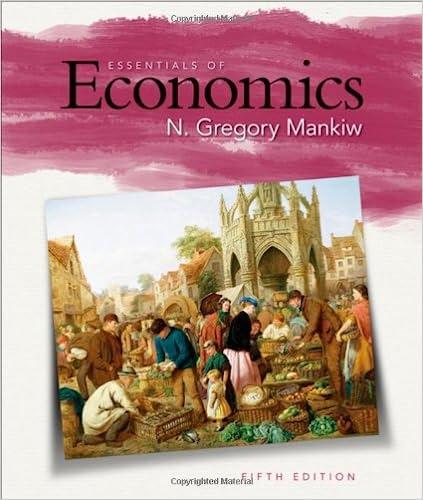Question
. 41.A major shift in perceptions about the role of government occurred during which of the following periods in history? A)Immediately following WW II B)In
.
41.A major shift in perceptions about the role of government occurred during which of the following periods in history?
A)Immediately following WW II
B)In the middle of the Great Depression
C)Just prior to World War I
D)In the 1990s
42.
How is a historical look at the macroeconomy of Canada beneficial?
A)
It assures us that the real issues of the day do not change.
B)
It enables us to realize that the views of economists about the issues of the day are very similar over time.
C)
It helps us to identify the relationship between economic events and changes in macroeconomy theory.
D)
It establishes the unchanging nature of macroeconomic theory.
43.Which one of the following does not explain why Canada survived the financial crisis so much better than did the United States.
A)Canada's banking regulations limit the amount of leverage and securitization possible.
B)Canada's Financial Consumer Agency restricted sub-prime lending.
C)Canadians never got caught up in the ideology that denies any need for regulation of the banking system.
D)House prices in Canada did not increase.
44.What is the essential difference between Keynesian and neoclassical views of macroeconomy?
A)The Keynesian view is that the economy is capable of automatically adjusting to economic changes because of the flexibility of wages, prices, and interest rates, while the neoclassical view is that the economy could get stuck in a recessionary gap because of their inflexibility.
B)The neoclassical view is that the economy can automatically adjust to economic changes because of the flexibility of wages, prices, and interest rates, while the Keynesian view is that the economy could get stuck in a recessionary gap because of their inflexibility
C)While both views agree on the automatic adjustment ability of the economy, the Keynesian view sees wages as flexible, but the neoclassical view does not.
D)While both views agree on the automatic adjustment ability of the economy, the neoclassical view sees wages as flexible, but the Keynesians do not.
45.What was the supply-side diagnosis of stagflation?
A)It was triggered by the high price of imported oil and accentuated by declining productivity rates.
B)It was triggered by the stock market crash and accentuated by the low price of imported oil.
C)It was triggered by the stock market crash and accentuated by declining productivity rates.
D)It was triggered by the stock market crash and accentuated by the high price of imported oil.
Please read the following statements to answer Question #46:
1. Housing prices will always rise.
2. Unregulated markets are preferable to markets that are regulated.
3. The risks inherent in granting sub-prime mortgages can never be hedged.
4. The collapse of Long Term Capital Management's hedge fund was a precursor to the future.
5. No one was responsible for the hundreds of billions of dollars that were being loaned out.
46.Chapter 13 identifies three blunders during the several years leading up to the financial crisis of 2007-2010. Which three of these statements reflect those blunders?
A)1, 3 and 4
B)2, 3, and 5
C)1, 2 and 5
D)3, 4, and 5
47.With which of the following events are derivatives, hedge funds, and sub-prime mortgages all associated?
A)The Great Depression
B)The post-World War II economic boom period
C)The financial crisis of 2008-2010
D)The stagflation years of the 1970s
48.According to neoclassical economists, what would happen if total spending was less than total output?
A)Product prices would rise, but wage rates would fall.
B)Product prices would fall, but wage rates would rise.
C)Nominal GDP would rise, but real GDP would remain constant.
D)Both product prices and wage rates would fall.
E)Both product prices and wage rates would rise.
49.
Which of the following statements is likely to be true in the future?
A)
Unemployment will continue to be a problem for some individuals despite an overall strong and growing economy.
B)
Inflation is likely to remain low.
C)
Income distribution patterns will show increased gaps between the rich and the poor, despite a strong and growing overall economy.
D)
All of the above.
50.
What is the most likely effect of the new economy?
A)
Knowledge will increasingly be substituted for financial capital.
B)
Firms will face an increased need for large inventories.
C)
Real capital will become even more important.
D)
The multi-national corporation will fade away.
E)
All of the above.
Step by Step Solution
There are 3 Steps involved in it
Step: 1

Get Instant Access to Expert-Tailored Solutions
See step-by-step solutions with expert insights and AI powered tools for academic success
Step: 2

Step: 3

Ace Your Homework with AI
Get the answers you need in no time with our AI-driven, step-by-step assistance
Get Started


